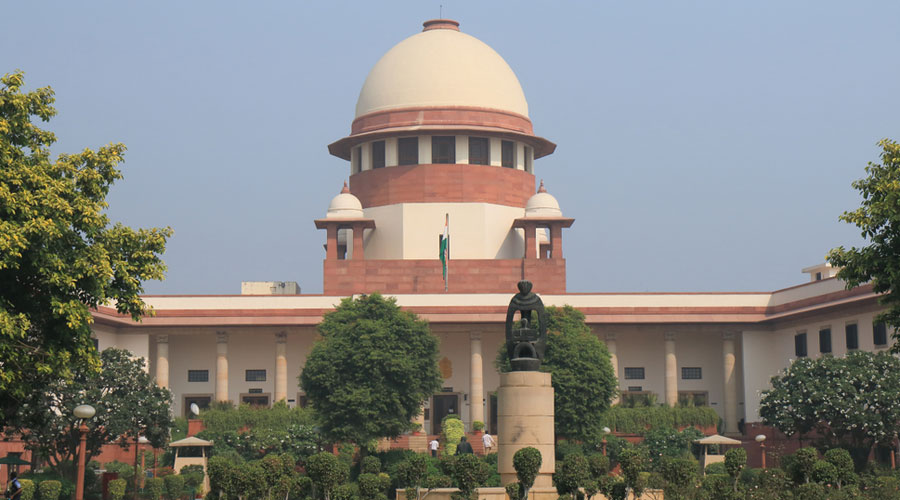The Supreme Court on Tuesday ruled that a Hindu woman is entitled to an equal share of the property as the male heir irrespective of whether the father or the mother died before 2005 when the Hindu Succession Act was amended to allow women an equal share in parental property.
However, the court made it clear that if the property had already been bequeathed before 2005, a female heir would not be able to claim any share if nothing had been left for her. Before the 2005 amendment to the Hindu Succession Act, 1956, only the male heir had the right to inherit parental property.
Prior to the 2005 amendment, Section 6 provided that if the parent had given a share of the property to a woman, it would be with her only till her lifetime, following which it would be distributed among her male coparceners or their male heirs. The woman had no right to sell or give away the property.
The Hindu personal Mitakshara coparcenary (matters relating to succession) law, widely prevalent in the country, not only contributed to discrimination on the ground of gender but was also oppressive and negated the fundamental right of equality guaranteed by the Constitution.
On Tuesday, a three-judge bench headed by Justice Arun Mishra cleared the air as various two-judge benches of the apex court had taken contrary views on the matter of inheritance by a female heir if the parent had died before the 2005 amendment. While some benches had held that the amendment had retrospective effect, some others had said their rulings would have prospective effect, prompting the matter to be referred to a three-judge bench for an authoritative pronouncement.
In the Prakash & Others vs Phulavati & Others (2016) case, the last ruling in the matter before Tuesday’s, a two-judge bench had ruled that Section 6 of the Hindu Succession (Amendment) Act, which gives a woman the right to have an equal share in parental property, would not apply in cases where the parent had died before the amendment came into effect on September 9, 2005.
Overruling the earlier judgments, the Supreme Court said on Tuesday: “It is not necessary that there should be a living, coparcener (heir) or father as on the date of the amendment to whom the daughter would succeed. The daughter would step into the coparcenary as that of a son by taking birth before or after the Act.”
Justice Mishra, who authored the judgment, wrote: “The expression used in Section 6 is that she becomes coparcener in the same manner as a son. By adoption also, the status of coparcener can be conferred. The concept of uncodified Hindu law of unobstructed heritage has been given a concrete shape under the provisions of Section 6(1)(a) and 6(1).
“…Thus, it is not at all necessary that the father of the daughter should be living as on the date of the amendment as she has not been conferred the rights of a coparcener by obstructed heritage.
“The effect of the amendment is that a daughter is made coparcener, with effect from the date of amendment and she can claim partition also, which is a necessary concomitant of the coparcenary.
“Hence, we respectfully find ourselves unable to agree with the concept of ‘living coparcener’, as laid down in Prakash v. Phulavati. In our opinion, the daughters should be living on 9.9.2005.”
The bench, which also had Justices Abdul Nazeer and M.R. Shah, clarified that if the property had already been written in the name of an heir before the amendment came into effect, the woman would not be able to claim a share.
The bench asked high courts to dispose of within six months all pending disputes on the issue in terms of Tuesday’s judgment.
“We understand that on this question, suits/appeals are pending before different high courts and subordinate courts. The matters have already been delayed due to legal imbroglio caused by conflicting decisions. The daughters cannot be deprived of their right of equality conferred upon them by Section 6. Hence, we request that the pending matters be decided, as far as possible, within six months,” the Supreme Court said.











